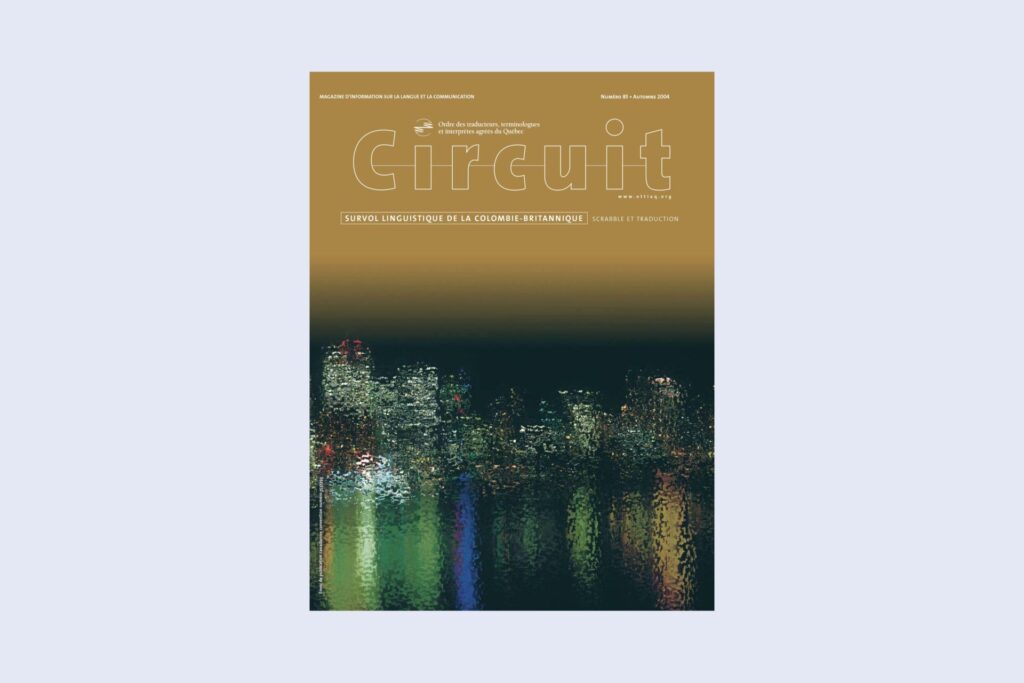By Emmanuelle Grandbois
Today’s global political landscape is vastly different than it was at the turn of the 21st century. The global level of peace has deteriorated for twelve consecutive years, referring to an indicator based on overall safety, the presence of ongoing conflicts and the militarisation of states.1 It is indeed not as uncommon nowadays to read about mass deportations, outright violence against dissidents and protesters or the vilification of one’s political enemies and critics. Those measures are effective when it comes to restricting human rights and fostering obedience. But those classic, run-of-the-mill dictatorial tools are sometimes accompanied by less obvious ones, ones used to control and alter citizen’s access and knowledge of the world. The Chinese government is, and has always been, a great example of such inconspicuous tactics.
For many years, the Chinese government has been consolidating its stronghold on all things censorship by using translation as a way of following its centuries old tradition of choosing what its population has access to. Tan Zaixi, a Professor Emeritus at the Hong Kong Baptist University, has been writing on this matter for over twenty years and has dated the use of translation to enact censorship to the very first years of the People’s Republic of China.2 As fellow university teacher Red Chan highlights, the Chinese government allowed the translation of works that reflected its own worldview as early as 1949, where it pushed for the translation of Soviet-era Russian literature, while simultaneously restricting the translation of Western works deemed ideologically unsound.3 As the century progressed and China opened itself to globalism, its use of translation as a censorship tool varied and went beyond choosing what could and could not be translated.
More recently, a different tactic has emerged: the use of translation not merely to limit access to information, but to actively rewrite it, often without the knowledge of the intended audience. While some texts are outright banned, others undergo what is called a “partial translation,” a process where sections can be omitted, or where the meaning or tone of specific words and passages are subtly altered.4 For instance, Henry Kissinger’s 2011 book On China was partially translated unbeknownst to its readers,5 some parts being completely removed and others altered to an almost comical level. For example, the following sentence: “students in Beijing and other cities took the opportunity to voice their frustration with corruption, inflation, press restrictions, university conditions, and the persistence of Party ‘elders’ ruling informally behind the scene” was translated as “students in Beijing and other cities made use of this opportunity to express their dissatisfaction,” while parts mentioning human rights or the 1989 Tiananmen Square massacre were completely removed.6
What’s more is that China’s censorship-driven translation does not stop with its attempt to rewrite and sanitize its history of political violence, it also aims at enforcing the country’s morality laws and their quest for a patriarchal and heteronormative utopia. Haina Jin and Zijin Ye, from the School of International Studies at the Communication University of China in Beijing, illustrated this phenomenon with their article discussing the example of the 2019 movie Bohemian Rhapsody, which will be used as a main reference in the following section.7 As the authors note, movies that referenced queerness were previously banned, with Freddie Mercury being the first protagonist to be openly queer and shown in a movie released in China. However, his queerness was more often than not erased from the movie through the manipulation of the translation used for the subtitles provided, as the movie was released in English with Chinese subtitles. Using Center College professor’s Marc Démont’s modal theory on translating queerness,8 the authors found that the translation of the movie used two strategies known as misrecognizing and minoritizing, which the authors describe as the following: “misrecognizing translation simply ignores queerness, and the minoritizing translation flattens queerness’ connotative meaning to a superficial denotative equivalence. Both the misrecognizing translation and the minoritizing translation dilute the queerness of the text.” For example, one of Mercury’s bandmate refers to the singer’s queerness by telling him he is not a part of the musical group the Village People, which is famously associated with queer culture. The translation replaces “you’re supposed to be in a rock-band Freddie, not the Village People” with “you’re in a rock-band, not with a group of village people,” removing completely the reference indicating Mercury’s apparent sexual orientation and constituting a form of minoritizing. As the authors highlight, the intention behind this type of translating error may very well be innocuous, stemming from either the translator’s misunderstanding of the reference, misevaluation of the audience or general lack of queer culture knowledge.9 However, the result of such an abridged translation remains the same as if it had done purposefully, resulting in another part of Mercury’s life – and more importantly, identity- erased from the film.
As the Chinese government keeps censoring books and movies coming into China by translating their meaning into whatever suits their traditionalist wishes and history-rewriting endeavors, new online-based tools have been slowly made available to them to facilitate that task. According to a 2024 report from the University of Toronto’s Citizen Lab, all five translating services available in China cited in the study systematically mistranslated and therefore censored specific words related to politics or religion.10 In total, the report found 10 000 unique automatically applied censorship rules among the services studied, which in all but one case, were employed without the user’s knowledge, perhaps altering permanently that person’s understanding of a word or concept as they believe the translation provided to be accurate.11
As Tan Zaixi highlights, there is something quite unnerving about taking a tool made to connect with cultures different than our own and using it to alter and limit that very connection.12 After all, translation and censorship do exist in very stark oppositions, translation seeking to dismantle barriers between people, while censorship tries to build those barriers and solidify them, sheltering citizens from a world beyond theirs.
Emmanuelle Grandbois is a Masters student graduating from UQAM at the end of the coming semester in the bidisciplinary law and political science program. More specifically, she specializes in a gendered approach of issues such as political violence, her thesis subject being on both the criminal reforms targeting the feminicide epidemic in Mexico in the early 2000s as well as the structural impunity that allows and fuels such gendered violence.
1 Institute for Economics & Peace (2024). Global Peace Index 2024: Measuring Peace in a Complex World. Vision of Humanity. https://www.economicsandpeace.org/wp-content/uploads/2024/06/GPI-2024-web.pdf.
2 Tan, Z. (2014). (Self-) censorship and the translator-author relationship: the case of full translation, partial translation and non-translation in the Chinese context. Asia Pacific Translation and Intercultural Studies, 1(3), 192-209. https://doi.org/10.1080/23307706.2014.956981.
3 Chan, R. (2007). One Nation, Two Translations: China’s Censorship of Hillary Clinton’s Memoir. In Translating and interpreting conflict (pp. 119-131). https://doi.org/10.1163/9789401204385_009.
4 Tan, Z. (2017). Censorship in translation: The dynamics of non-, partial and full translations in the Chinese context. Meta, 62(1), 45-68. https://www.erudit.org/en/journals/meta/2017-v62-n1-meta03122/1040466ar.pdf.
5 Tan, Z. (2017). Censorship in translation: The dynamics of non-, partial and full translations in the Chinese context. Meta, 62(1), 45-68. https://www.erudit.org/en/journals/meta/2017-v62-n1-meta03122/1040466ar.pdf.
6 Ibid
7 Jin, H., & Ye, Z. (2023). Translating queer elements in Bohemian Rhapsody in China. Perspectives, 31(2), 187-204. https://www.tandfonline.com/doi/full/10.1080/0907676X.2022.2105155?scroll=top&needAccess=true.
8 Démont, M. (2018). 11 On Three Modes of Translating Queer Literary Texts. Dans B.J Baer and K. Kaindl (dir.), Queering translation, translating the queer (1st edition, p. 157-171. Routledge.
9 Jin, H., & Ye, Z. (2023). Translating queer elements in Bohemian Rhapsody in China. Perspectives, 31(2), 187-204. https://www.tandfonline.com/doi/full/10.1080/0907676X.2022.2105155?scroll=top&needAccess=true.
10 Ruo, S., Knockel, J., and Reichert, Z. (2024). Lost in Translation: Characterizing Automated Censorship in Online Translation. Free and Open Communications on the internet 1(2), 93-102. https://www.petsymposium.org/foci/2024/foci-2024-0018.php
11 Ibid
12 Tan, Z. (2017). Censorship in translation: The dynamics of non-, partial and full translations in the Chinese context. Meta, 62(1), 45-68.



